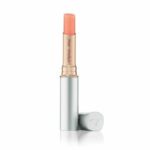Is there a connection between gluten and dry skin?
According to researchers and health organizations, there is.
In addition to that, gluten sensitivity or intolerance may cause other skin issues like itching, rashes, and dermatitis.
What is the Connection Between Gluten and Dry Skin?
Scientists say it’s common for intestinal diseases—like celiac disease—to cause symptoms in the skin.
Celiac disease is an autoimmune disease in which the immune system overreacts to the ingestion of gluten—a protein found in wheat, barley, and rye.
When people with celiac disease consume gluten, it triggers an immune response in the small intestine. The immune system reacts as if gluten is a dangerous invader, creating inflammation. Over time, this reaction can damage the lining of the small intestine which in turn, can affect how well the small intestine absorbs nutrients from food.
According to the Mayo Clinic, people with celiac disease may notice symptoms like the following:
- Anemia
- Loss of bone density
- Itchy, blistery skin rash
- Mouth ulcers
- Headaches and fatigue
- Numbness and tingling in the feet and hands
- Joint pain
Additional research shows that celiac disease—and even gluten sensitivity—may also be related to other skin conditions like psoriasis and eczema.
When Gluten Causes Blistering Rashes
The most well-known skin-related issue related to celiac disease is a condition called dermatitis herpetiformis (DH).
This is a chronic, intensely itchy, blistering skin rash. It tends to show up on the elbows, knees, buttocks, back, or scalp. Some people experience a burning sensation before the lesions form.
DH is caused by deposits of immunoglobulin A (IgA) in the skin. These are proteins or antibodies the immune system uses to fight against foreign invaders. When people with celiac disease consume gluten, the immune system creates these antibodies to fight it.
These antibodies, in turn, create inflammation that damages the lining of the small intestine. They can also trigger blister-like lesions on the skin.
In a large population study, researchers found that celiac patients were 1.5 times more likely to develop hives and almost two times more likely to develop chronic hives than the general population.
Celiac Disease and Psoriasis, Eczema
Studies have also found a link between celiac disease and psoriasis and eczema.
In one meta-analysis, scientists discovered that psoriasis patients were three times more likely to develop celiac disease than those without psoriasis. Other evidence has shown that those with psoriasis were almost 2.5 times more likely to have anti-gluten antibodies.
Several studies show that the two conditions share common genetic and inflammatory pathways.
Interestingly, some small clinical trials have shown that a gluten-free diet can help decrease the symptoms of psoriasis.
Other studies have shown a connection between gluten-related health issues and atopic dermatitis (AD), or eczema. In 2014, scientists reported that among children with celiac, AD was common. An earlier study showed that AD was about 3 times more frequent in patients with celiac disease.
Gluten and Dry Skin: Gluten Sensitivity
Some people are sensitive to gluten, even though they may not have celiac disease.
The difference between celiac disease and non-celiac gluten sensitivity is that people with celiac disease suffer intestinal damage when they eat gluten.
People who have non-celiac gluten sensitivity or intolerance do not have intestinal damage or the antibodies found in those with celiac disease.
They may, however, notice symptoms after eating foods with gluten in them. These may include:
- Bloating and gas
- Fatigue
- Nausea
- Diarrhea and/or constipation
- Headaches
- Brain fog
- Joint pain
- Mood swings
They may also find that consuming gluten leads to exacerbation of skin problems.
Many people with gluten sensitivity, like myself, suffer from very dry skin and report their skin is flaky and sometimes develops rashes, acne, and patches of eczema.
According to a 2021 review, non-celiac gluten sensitivity or intolerance may be linked to psoriasis, atopic dermatitis (eczema), and vitiligo (lightening of the skin).

Gluten and Dry Skin: Does It Help to Change Your Diet?
In a 2015 study, researchers found that participants diagnosed with non-celiac gluten sensitivity (NCGS) who also suffered from skin lesions improved after they adopted a gluten-free diet.
In a 2018 study, researchers also noted that those with NCGS commonly suffered from dermatitis, rash, and eczema. Some had scaly lesions resembling psoriasis. In all patients, a gluten-free diet led to the disappearance of the lesions within one month.
These studies aren’t conclusive. In other words, we don’t know for sure if a gluten-free diet will solve any skin issues you may have related to the ingestion of gluten. But there is evidence that in some people, it might.
Gluten and Dry Skin: Steps to Try
Every day we learn more about how closely connected are the digestive system and the skin. Both contain immune cells that if triggered by dietary factors, can overreact. (Read more about the immune system in your skin here!)
If you know you have celiac disease or are gluten intolerant and are struggling with skin problems like dryness, eczema, psoriasis, hives, or other issues, you may wonder if a gluten-free diet may help.
The only thing you can do is try it. Keep in mind, however, that following a gluten-free diet can be difficult. It’s best to turn to this option only if you know you have celiac disease or have been diagnosed with NCGS. Otherwise, it may be best to simply cut back on your intake of gluten-containing foods. (Find a list of gluten-containing foods here.)
At my doctor’s recommendation, I adopted a gluten-free diet and it has indeed helped me feel better.
If you do decide to go completely gluten-free, be wary of commercially made gluten-free foods. Many contain extra fat or sugar, so always read your ingredient labels.
Then be sure to take proper care of your skin to help increase its defenses against inflammation. We recommend our CV Skinlabs products. All of our products are gluten-free and contain ingredients that help tame inflammation and calm the skin while building up the outer layer so that it’s more resistant to problems. Plus, moisturizing and healing ingredients keep skin supple while reducing symptoms of eczema, psoriasis, flaking, itching, rashes, and other associated skin issues.
Do you notice skin problems related to gluten?






